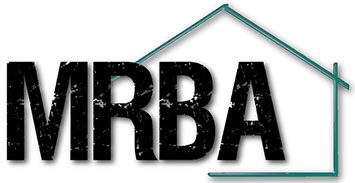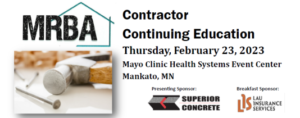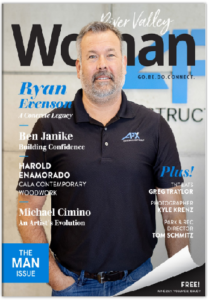Four schools in southern Minnesota will receive some of the first grants from the MRBA Building Our Future Grant Fund of the Mankato Area Foundation.
Loyola Catholic School in Mankato will receive $6,000 to support its woodworking class and their partnership with Makerspace. School administrators report that this is one of the most in-demand courses offered through their “Flex Friday” program, with a waitlist of students hoping to enroll. This course allows students experience authentic hands-on learning while developing their carpentry skills.
St. Clair High School has been awarded $2,000 to support curriculum development for a new course focused on introductions to the trades, including carpentry, electrical, plumbing, welding and HVAC.
Similarly, Mankato Area Public Schools (MAPS) has been awarded $2,000 to help develop a new course focused on Geometry in Construction. Students will use this course to create an experience using geometry concepts in framing, foundation layout, surveying and green technology.
When St. Clair and MAPS have courses in place, both will be eligible to apply for further grant funding to assist in covering the costs of tools, construction materials, and field trips.
Maple River Schools will receive $1,000 as well as in-kind support from the MRBA to further develop a classroom for a robotics course where students will utilize their skills in carpentry, electrical and welding.
“We are very excited to start distributing our grant funds. Many of our area schools are working on curriculums to increase exposure to the trades, which closely aligns with the objectives of our organization. We are thrilled to be able to support these endeavors, and look forward to watching these programs grow,” said Emmy Phillips, MRBA Board President.
“This is another wonderful example of how charitable giving can be used to address a variety of needs facing our communities. It has been inspiring to work with the MRBA as they focus on this growing demand,” said Nancy Zallek, President and CEO of the Mankato Area Foundation.
About the MRBA’s Building Our Future Grant Fund of the Mankato Area Foundation: Grants supporting area high schools in southern Minnesota in relation to the construction and trades industries. Grants could support educators, tools, classroom upgrades, field trips, special programs, etc. There are 29 high schools in the MRBA service area that will be eligible to apply for grants. Schools can apply for grants through the Mankato Area Foundation website. In addition, other organizations, businesses, or individuals can also donate to help grow this fund.


